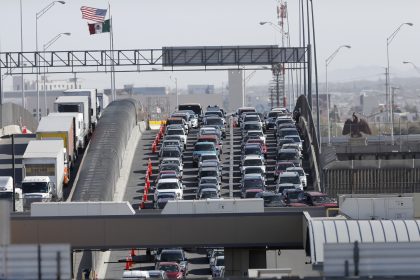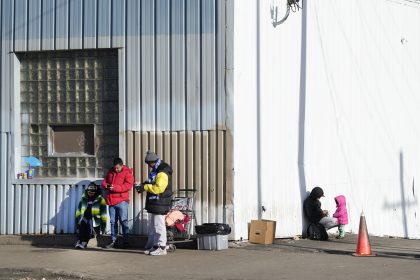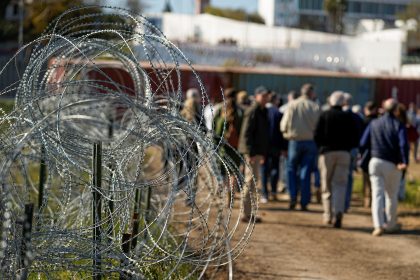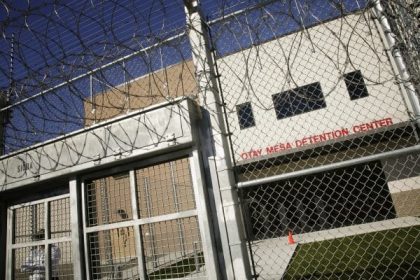Supreme Court Okays Fast-Track Removal of Asylum Seekers

WASHINGTON – The U.S. Supreme Court handed a major victory to the Trump administration on Thursday, ruling that asylum seekers have no right to a federal court hearing before being removed from the United States.
The 7-2 decision reverses an earlier ruling by the 9th U.S. Circuit Court of Appeals, and could potentially affect tens of thousands of immigrants.
At issue in the case was whether a federal immigration law that aims to reduce meritless asylum claims through expedited proceedings violated immigrants’ due process rights under the Constitution.
It all began after Vijayakumar Thuraissigiam, a member of Sri Lanka’s Tamil ethnic minority, was apprehended about 25 yards north of the Mexican border near San Ysidro, Calif.
Thuraissigiam immediately sought asylum, explaining in imperfect English, that he faced a credible fear of persecution if he were returned to his home country.
His request was considered under “expedited removal” procedures called for by a 1996 law that streamlined asylum applications from people caught near the border and barred courts from reviewing most aspects of the determinations made under the procedures.
Thuraissigiam, a farmer, told an asylum officer that he had been savagely beaten in Sri Lanka by men who had blindfolded and abducted him.
Though the asylum officer believed Thuraissigiam, the story was problematic — the injured man, who spent 11 days in a hospital recovering from the beating — could not identify his assailants or establish any motive for the harm they did to him.
In the end the officer said he could not offer Thuraissigiam asylum.
Thuraissigiam filed a petition for a writ of habeas corpus in federal court, noting what had happened to him was consistent with documented instances of abuses directed against Tamils in Sri Lanka.
A trial judge rejected the petition, saying it was barred by the 1996 law.
That’s when the Ninth Circuit stepped in. It ruled the law unconstitutional, holding that it violated the Constitution’s Suspension Clause.
The Suspension clause states that the privilege of the writ of habeas corpus “shall not be suspended, unless when in cases of rebellion or invasion the public safety may require it.”
The Ninth Circuit ruled that restrictions on the ability of asylum seekers to obtain review under the federal habeas statute are unconstitutional because they suspend the writ of habeas corpus and violate asylum seekers’ right to due process.
But a majority of the justices disagreed.
Writing for that majority, Justice Samuel Alito Jr., said, “While aliens who have established connections in this country have due process rights in deportation proceedings, the court long ago held that Congress is entitled to set the conditions for an alien’s lawful entry into this country.
“As a result, an alien at the threshold of initial entry cannot claim any greater rights under the Due Process Clause,” Alito said.
He went on to say that the arguments the plaintiff raised in the original case about the Suspension Clause failed because they would “extend the writ of habeas corpus far beyond its scope when the Constitution was drafted and ratified.”
Their due process argument, Alito wrote, “fares no better.”
The majority comprised all but two of the court’s more liberal justices, Sonia Sotomayor and Elena Kagan, who dissented.
In her dissent, Justice Sotomayor argued that “it is universally acknowledged that the asylum regime is under strain. It is also clear that, while the reasons for the large pending caseload are complicated, delays in adjudications are undesirable for a number of reasons.
“At bottom, when asylum claims are not resolved in a timely fashion, the protracted decision making harms those eligible for protection and undermines the integrity of the regime as a whole,” she said.
“But the political branches have numerous tools at their disposal to reform the asylum system, and debates over the best methods of doing so are legion in the government, in the academy, and in the public sphere,” Sotomayor said.
“Congress and the Executive are thus well equipped to enact a range of measures to reform asylum in a number of ways and routinely do so,” Sotomayor said. “Indeed, as the Court notes, the expedited removal process at issue here was created by law as one such measure to ease pressures on the immigration system.
“In the face of these policy choices, the role of the Judiciary is minimal, yet crucial: to ensure that laws passed by Congress are consistent with the limits of the Constitution,” she said.
Sotomayor went on to say that in making its decision Thursday, the High Court ignored its obligation,” going out of its way to restrict the scope of the Great Writ and the reach of the Due Process Clause.
“This may accommodate congressional policy concerns by easing the burdens under which the immigration system currently labors. But it is nothing short of a self-imposed injury to the Judiciary, to the separation of powers, and to the values embodied in the promise of the Great Writ,” she wrote.
Dr. David Hernández, associate professor of Latino Studies at Mount Holyoke College, in Massachusetts, said Thursday’s ruling “empowers front line officers to cast permanent judgements upon asylum seekers at the very moment they are most vulnerable.
“Any rogue or partisan behavior on the part of agents is devoid of checks and balances and ripe for the exploitation of desperate asylum seekers as a result of the ruling,” Hernández continued. “It’s quite simply an end-run around migrants’ access to the judiciary to sort our complex, life and death cases. Keep in mind, President Trump often speaks past leadership and directly to frontline immigration officers and Border Patrol agents, boasting of their partisan support and having publicly offered future pardons for violating immigration regulations that meet the administration’s goals.”
























